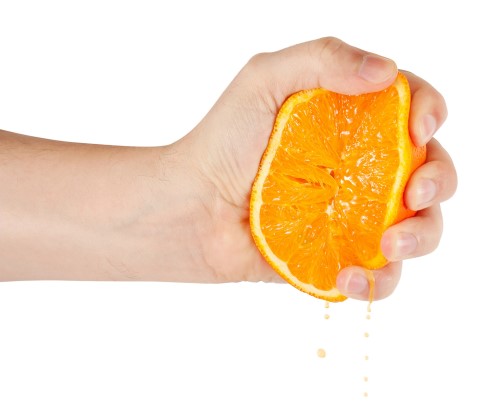Better Juice has developed a patent-pending enzymatic technology that uses all-natural ingredients to convert monosaccharides and disaccharides (fructose, glucose, and sucrose) into prebiotic and other non-digestible fibers and sugars, while keeping the flavor of the juice.
Mono-and disaccharides, often called simple sugars, are easy for the body to digest and thus quickly metabolized.
If the energy they provide cannot be used, it is converted to fat and stored.
When these individual sugar molecules link up, they become prebiotic fibers that are non-digestible.
The shorter of these fibers, called oliggosaccharides, are sweet yet have been shown to bestow a number of health benefits, from protecting against disease to helping manage weight. There are other natural monosaccharides that are not easily digested.
These sugars have no glycemic index and low caloric values.
Popular juices, such as orange juice and apple juice, have nearly 25 g of sugar per 1-cup serving (250 ml).
Although juice contains the vitamins and minerals one would find in fresh produce, it is devoid of most of the natural dietary fiber as an outcome of traditional methods of juicing.
In addition to its intrinsic health benefits, fiber also makes a person feel full.
Better Juice’s process harnesses a natural enzymatic activity in non-GMO microorganisms to convert a portion of the simple fructose, glucose, and sucrose sugars into fibers and other non-digestible natural sugars.
The process works on all types of sugars while preserving the flavor and the vitamins and other nutrients inherent in the fruits.
The technology was developed in collaboration with Hebrew University in Rehovot, Israel.
“This natural and non-fermentative process occurs without adding or removing ingredients,” says founder and CEO Eran Blachinsky.
“It also will not alter the flavor or aroma of the juice.”
“While the process slightly reduces the sweetness of the juice, it actually brings out more of the fruit flavor, making for a better-tasting juice product overall.”
Better Juice conducted several trials with beverage companies and reduced sugars in orange juice from 30%, up to 80%.










